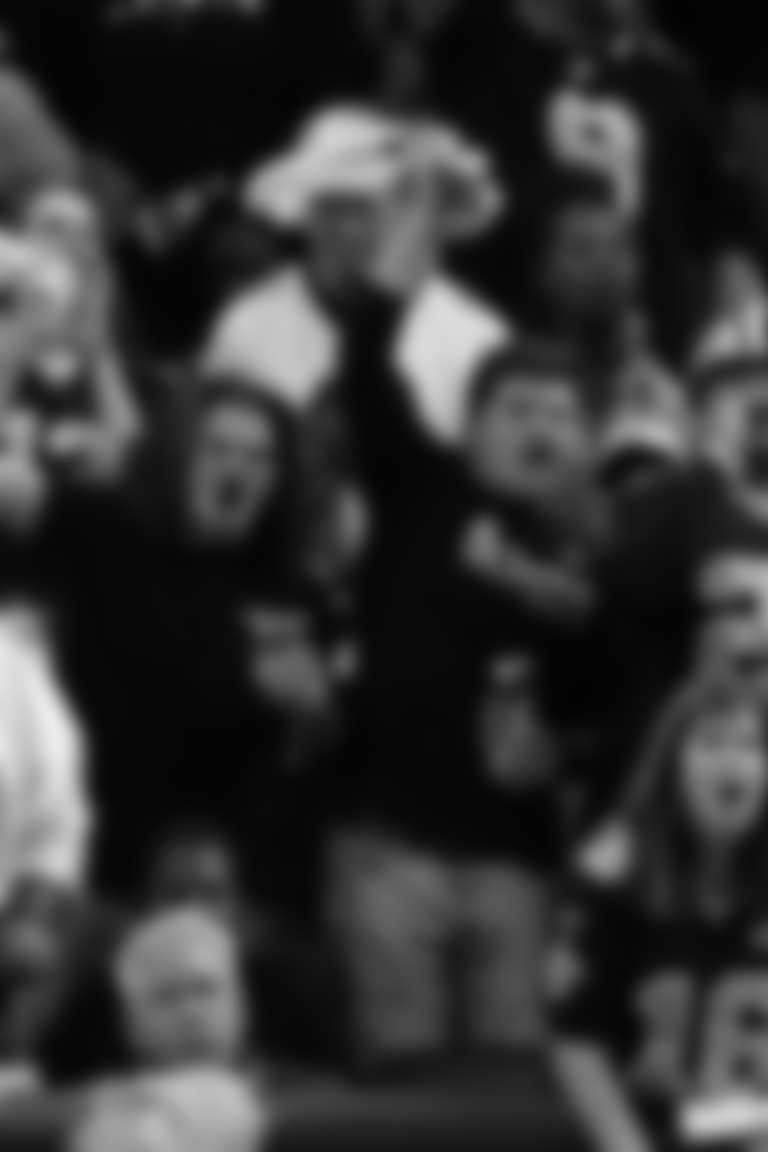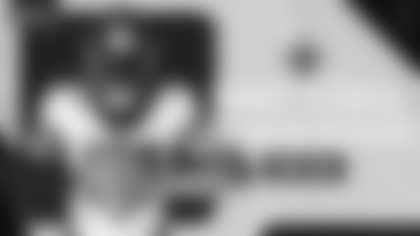<span>
<span style="">Q: A lot is being made of the Wildcat. What makes it so effective for you guys?</span>
A: I think the people that are handling the football for us. Certainly with Ronnie (Brown), Ricky (Williams), Pat (White), with any of the people handling the football, Pat Cobbs before his injury…Any of the people handling the football for us were people that we trusted and second of all that I think are pretty good players. I also think that there's some misdirection involved in the Wildcat. It helps create a few blocking angles for the people up front.
Q: Is it the single wing or a derivative of the single wing?
A: No. I would say it's an offshoot of the single wing. I think that some of the things we are doing are a little bit different than the good old single wing. I would say it's a little bit different.
Q: Do you guys take pride in that a lot of teams try to replicate and duplicate this offense, but you guys are the most successful?
A: I don't think we take great pride in anybody else running it, particularly when it shows up against us at times. I do think from our end, the guys take great pride in it. It's something that we've been able to put our arms around here. It's a small part of what we do. It's not everything we do, but it certainly gets a lot of attention.
Q: What went through your mind in deciding to run it?
A: I think we are just looking for a little bit of an identity at the time. We were 0-2. We had just gotten beaten pretty badly by Arizona at Arizona and this was something that we had spent some time working on at OTA's in the spring, no different than probably anybody else spends some time working on some things they're not sure that they're going to run during the season. At that time, Ronnie Brown was coming off of an ACL, Ricky (Williams) coming off of a shoulder surgery. We weren't sure if we had the pieces or not. After the Arizona ballgame we knew a little bit more obviously about our team. We were trying to get Ricky and Ronnie on the field at the same time and this was the way to do that and at the same time help our offensive line create a little bit of space.
Q: Did the success of the package in college get you and your staff thinking about running it?
A: Sure, if it was something that had no success, I wouldn't be all for it one way or the other. I'm one of those guys that needs evidence. I need to see it to believe it. We studied the tape; we look at some of the options we thought we might have had to get this thing run. Our problem was we had no idea about how people were defending it and we still don't have any idea how people defend it, meaning every week, there's something different. We're trying to stay ahead of the curve.
Q: Since repetitions are at a premium at a practice, is part of the strategy to force an opponent to spend practice time on it?
A: Sure. I think you have to spend some time on it no different than the time we have to spend on the amount of play action pass that people might have in any of those things that people are doing. You take a look at what the opponent is doing and how much they're doing it and that's the amount of time you can afford to spend on it. Just because we run the Wildcat and maybe we run it nine or ten plays, doesn't mean you can devote 30 or 40 reps during the week at it. I think it's a little bit hard to do that, but you do have to spend time on it.
Q: While you watch other teams try to defend it, do you also have to stay ahead of the curve offensively?
A: Yes, the nice thing about it and I think one of the things that helped us this year is that we had about 100 plays whereas it was on film for the whole league to see last year. They were studying it, which I'm sure everybody did in the offseason as we went out in preseason and some of these things. The more people you see running it across the league, the more evidence there is on tape of how some people might do something against it. When we get in a game for whatever reason it never quite looks the same.
Q: Are you surprised or do you have a response to when some analysts knock it or say it isn't real football?
A: Nothing surprises me anymore. I think that what I've learned in this league yards are hard to come by, so are wins. Anyway we can get yards and get closer to wins, we're going to do it. I really could care less about what anyone else has to say.
Q: When you put on the tape and watch the Saints on offense and defense, what is the one thing that jumps out at you?
A: I think their team speed is one of the things that jumps out at you, also the fact that they are a very physical team on both sides of the football. I think their front on defense is very, very physical. I think their front seven people do ian outstanding job against the run and they get after you pretty good in the pass game. I think on the other side of the ball that offensive line is really a physical group. They do a nice job in there, a good hardball run game that they got going and do a great job of protecting the passer. I think those are the things that jump out at you, never mind the weapons. I think they have so many weapons down there and to me it all starts with the quarterback. He's an outstanding player.
Q: How has Chad Henne handled the transition into the starting role? Did him starting for four years at Michigan help?
A: I hope so. I think it did. I think that one of the things is, it's more with these college kids coming out of these big programs like Chad has, they've played in some big football games before so the first time you roll them out there and they're in front of a big crowd. That is really the issue. What might be the issue is the team speed you're playing against, certainly the level of player. Even there, with Michigan playing Ohio State or any of those people you would think it's a pretty darn good competition out there on the field. It think that's been certainly a help, but I think one of the biggest helps that Chad Henne has had here is that I think he is really well coached and I think Chad Pennington did a marvelous job in helping with this process.
Q: What helped lead to your team's turnaround?
A: I think our players have done a good job of staying the course and keeping their head down. They understand that hard work is what gets you there. They understand that the way to turn things around is to put your head down and keep grinding. Out on the practice field there are some things we know we need to get better at as a football team. We continue to try to do that each week as we go along. Some of those football games, could have, should haves, would haves, all those good things. We felt like we did some decent things in some of those games, but we didn't win and at that time as I told them, we're a 0-3 football team. You are what your record says you are. You're a 0-3 team. We had to do something to change it. These guys to their credit, just kept grinding away and never lost focus on what we were trying to do, never worried about the second guessing and all those things, just kept their head down and concentrated on one win at the time and that was against Buffalo.
Q: What does a happy and healthy Ricky Williams mean to your program?
A: It means a bunch. I think first of all, the relationship that Ricky and Ronnie (Brown) have back there is outstanding. The fact that Ricky since the day I walked through the door here, my slate was clean with him, as I said, it was 0-0 kind of coming into this thing and Ricky has done nothing but be an outstanding professional since the day I walked through the door here, so I think what it does for our football team is it gives us another veteran leader on this team that has been through some of this before and sets a real good example for our young players.
Q: Is he playing at the best level you've been at right now?
A: Yes, he really is. A long time ago, I had a chance to play him in Thanksgiving day when I was in Dallas. Sean (Payton) was with me on that staff at the time. Ricky ran up and down the field that day, just killed us. Getting a chance to see him right now with two full offseason programs under his belt, certainly I think he's in the best shape he's been in an awful long time. I think that this right now that time is the best I've seen him.
Q: You spent time with Sean in Dallas. Is there too much made sometimes of coaches that have a lot of familiarity with each other?
A: I'm sure it is. Sean, first of all, I have a great deal or respect for him and I know he knows that. I have not been with Sean in a few years and he has not been with me in a few years. They're doing different things. He has his team going one way. I'm trying to get my team going in that direction. We have been together for a little while. We're good friends, but I think some of that stuff can get overplayed?
Q: What's one memory that stands out about coach Payton?
A: Sean and I. There's a few. I should keep those to myself.
Q: If I forced you to use one word to describe him, what word if you were describing him to another person that had no idea who he was, what would the word be?
A: Brilliant.
Q: Would you consider him an evil genius on offense?
A: I consider him an evil genius, yes.
Q: You look at the New England game last year and that's when the Wildcat burst on the scene. Are there games where you haven't used it?
A: Yes. There's been some games that we haven't used it. Maybe we didn't think via film we had the right look, those types of things, but usually if we're preparing it, we'll put it out there for a player to see how people do. It just depends on how things are going in the course of the game and how people defend it with whether or not we use it. We might have two plays worth, we might have 15 plays worth. We might have no plays.
Q: Do you want to tell us how many plays you're going to run it against New Orleans?
A: Definitely not.
Q: Last year Miami might have snuck up on teams. Do you see teams treating you any differently?
A: I don't really think so. I think the last year, coming off a 1-15 season and trying to get things going in the right direction, whether we snuck up on people, we didn't sneak up on people. It's my feeling initially that if you show up and your teams not prepared to play than shame on you. I just think that in some of those ballgames our guys really had to grind into the fourth quarter to win games. I don't want to take anything away from my players. I think that my players do a tremendous job in doing that to change the culture. You guys went through it down there yourselves and now you're sitting in a situation that's pretty darn good. When you're trying to change a culture, you need to give your players some credit. I don't do it very often, but in that case, I will. The NFL set them up for us and we were able to go out and play the games and do what we needed to do and win some football games. Here we are a year later and whatever they say, toughest schedule, whatever the case is, that's what you do this for. We're in the business of trying to win football games. Whatever it takes for us to do that, we're going to try to do that and we're not really worried about who we're playing or any of those things.
Q: Is one of the benefits of the Wildcat being able to maximize what you have playerwise?
A: Sure. Anytime I can get Ricky (Williams), Ronnie (Brown), any of those people out there at the same time, that helps me instead of worrying about how many touches somebody's going to get here, there or any of those types of things. So, I have Ricky, Ronnie, my quarterback. I have all of those people out there. That helps me.











